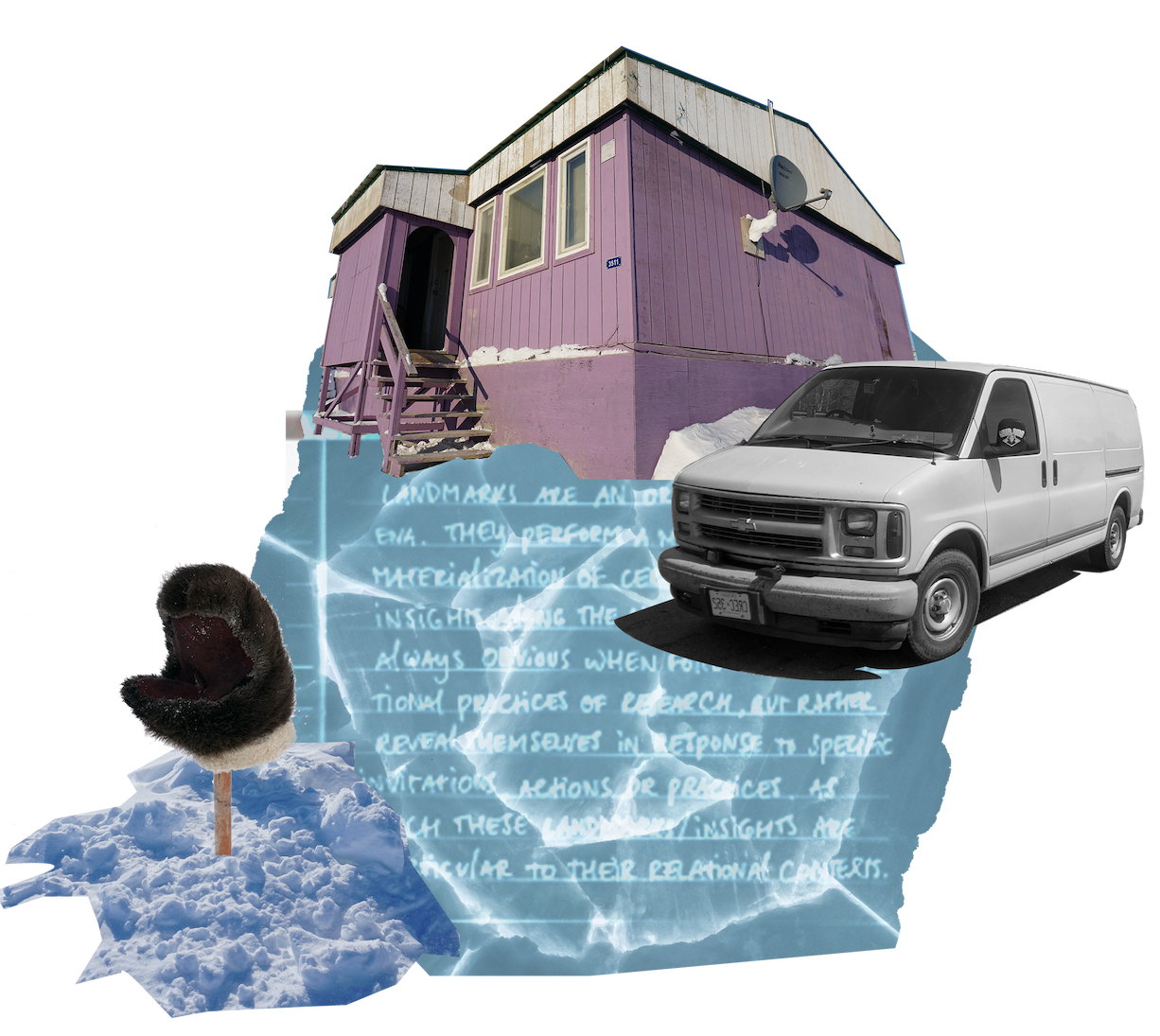Entering into relationship: Difference between revisions
No edit summary |
No edit summary |
||
| (7 intermediate revisions by 2 users not shown) | |||
| Line 1: | Line 1: | ||
[[File:Landmark.png|thumb]] | [[File:Landmark small.png|thumb]] | ||
'Is “polite” refusal ultimately a colonizing action?' (Martin, 2016) | |||
<span class="return to cut 3 link" data-page-title=" | With this question Keavy Martin ties up questions of responsibility with the matter of Inuit and non-Inuit encountering each other. She explores what acknowledging or honouring relationships as a decolonial practice might look like, through the ethics of hunting and eating of animals (ibid). She links the matters of such bodily sharing, with sustenance and survival - with renewal of life. "We are reliant upon the bodies of others", and our bodies are always transformed in the process of such sharing, whether it is one body giving itself to another - or one body giving birth to another (ibid, p. 452). Sharing is life. | ||
Although such bodily sharing has been part of my experiences in the communities of Gjoa Haven and Coral Harbour through the consumption of Seal meat, Arctic Char, Caribou and Muktuk, this landmark insight refers rather to a less consumptive engagement. Entering into relationship also means partaking in the reciprocal customs of gifting and sharing, and allowing yourself to be transformed by those processes. | |||
<div class="next_choice">You have found your way across the ice-pressure ridge, return to cut 3</div> | |||
<span class="return to-cut-3 link" data-page-title="Wayfaring the BW project" data-section-id="1" data-encounter-type="return">[[Wayfaring the BW project#Covid-19 Remote Interviews|Return to Cut 3: Wayfaring the Bearwatch project]]</span> | |||
Latest revision as of 12:42, 18 July 2025

'Is “polite” refusal ultimately a colonizing action?' (Martin, 2016)
With this question Keavy Martin ties up questions of responsibility with the matter of Inuit and non-Inuit encountering each other. She explores what acknowledging or honouring relationships as a decolonial practice might look like, through the ethics of hunting and eating of animals (ibid). She links the matters of such bodily sharing, with sustenance and survival - with renewal of life. "We are reliant upon the bodies of others", and our bodies are always transformed in the process of such sharing, whether it is one body giving itself to another - or one body giving birth to another (ibid, p. 452). Sharing is life.
Although such bodily sharing has been part of my experiences in the communities of Gjoa Haven and Coral Harbour through the consumption of Seal meat, Arctic Char, Caribou and Muktuk, this landmark insight refers rather to a less consumptive engagement. Entering into relationship also means partaking in the reciprocal customs of gifting and sharing, and allowing yourself to be transformed by those processes.
